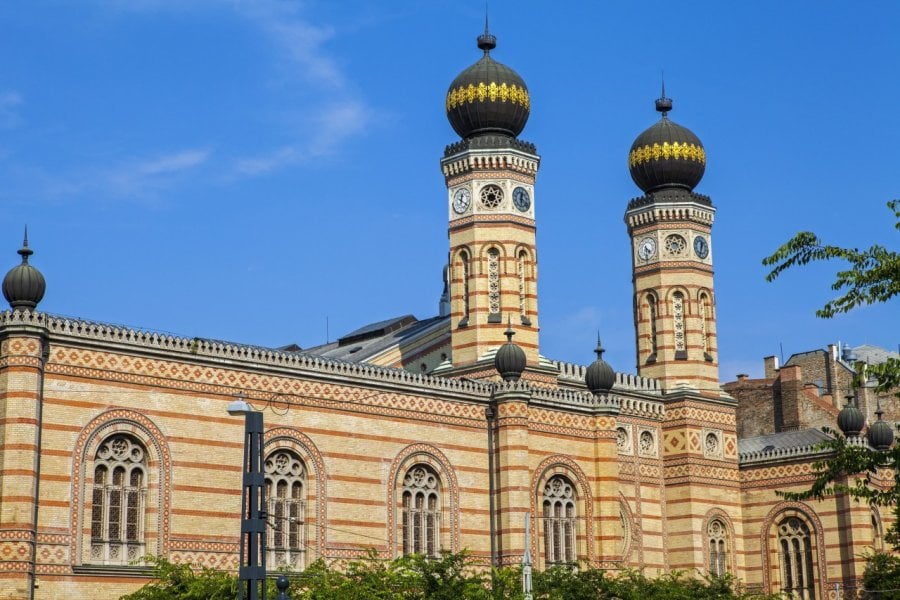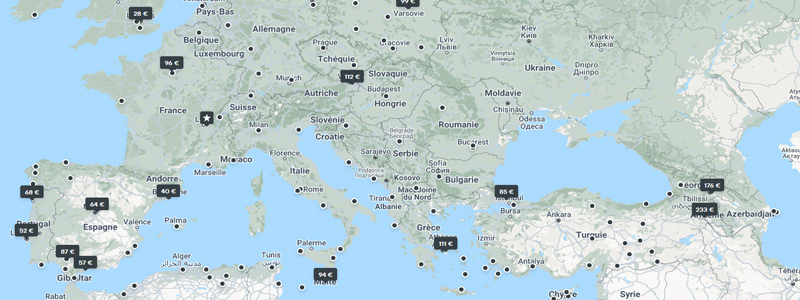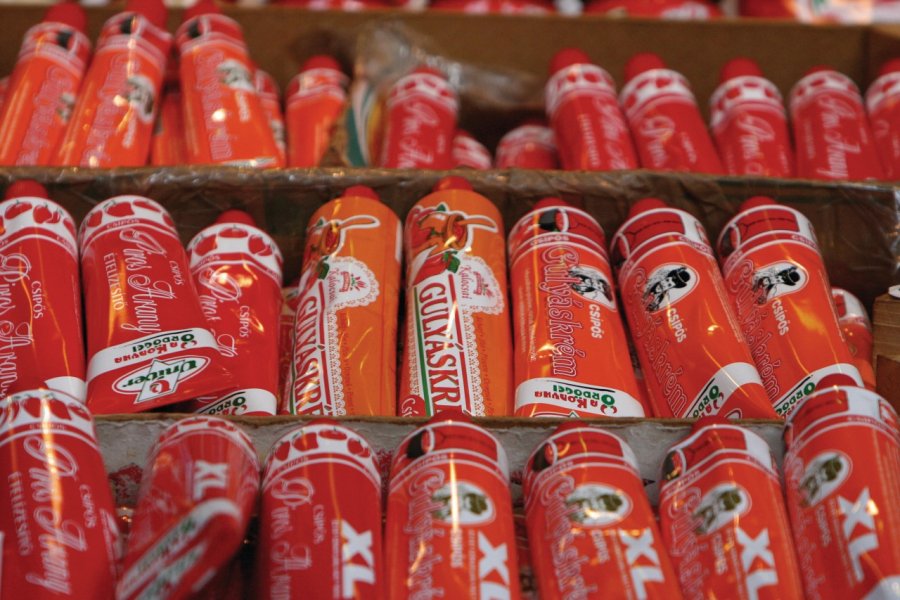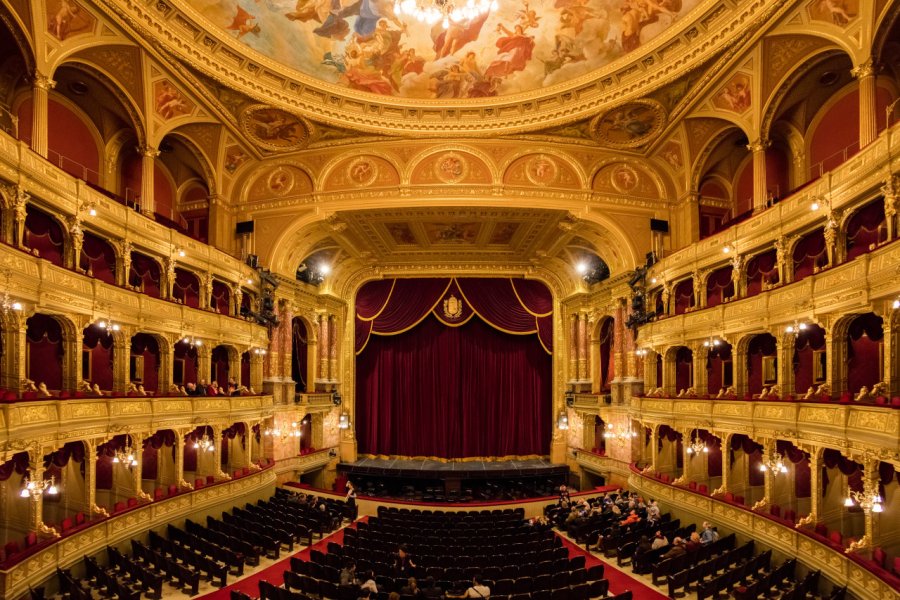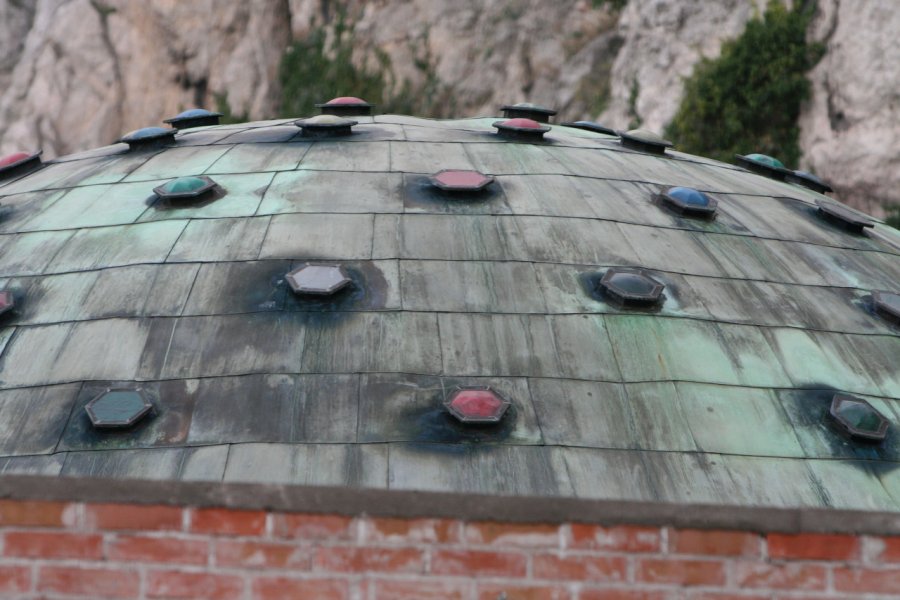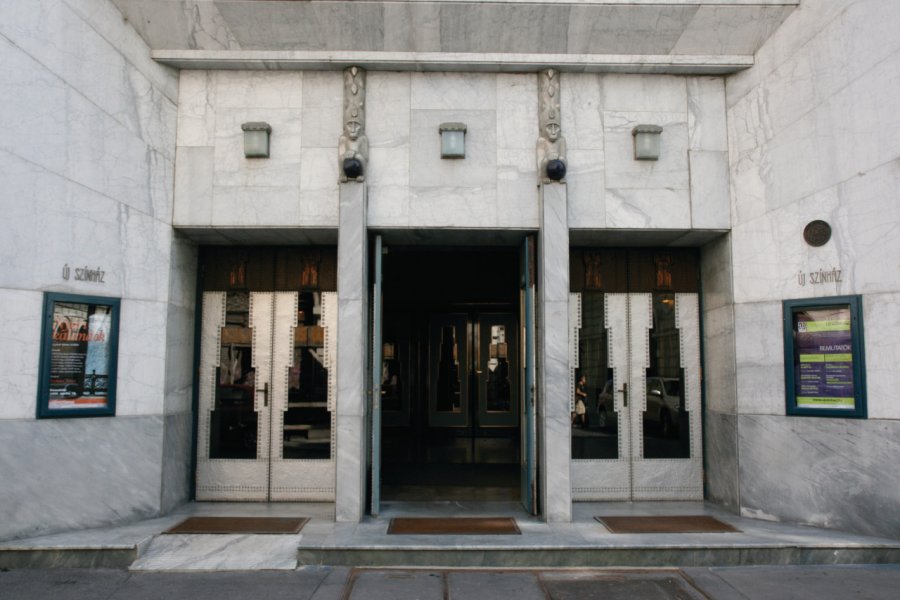Travel guide Budapest
Less than three hours away from France, stands the new favorite holiday destination of tourists on the go and lovers of an immediate change of scenery: Budapest. A city of history with multiple influences, Roman, Mongolian, Ottoman and then Austrian, the capital of Hungary has remained in its original state as evidenced by its countless buildings from past centuries still awaiting renovation. From the banks of the Danube - classified as a world heritage site - to the largest synagogue in Europe, passing by the Parliament, the Basilica of St. Stephen, the narrow streets of the Jewish quarter, the buildings constructed by the Eiffel Company, the bridges, the Art Nouveau buildings, the Buda Castle, the monuments of Andrassy Avenue, the architectural heritage will never cease to amaze you in the company of your Budapest tourist guide. Budapest is also one of the most beautiful thermal cities in Europe with more than a hundred hot springs and indoor or outdoor complexes to fall in love with, symbolized by the Szechényi Baths. In the evening, the city also knows how to take bohemian airs and will know how to delight anyone with multiple festivals and festive places installed in the center in improbable places: ruined buildings, gardens, rooms richly baroque...
What to see, what to do Budapest?
-
Book an activity
-
Customized travel
- Addresses to visit Budapest
When to go Budapest ?
The best time to go to Budapest is before or after the high season, in late spring or mid-autumn. The Hungarian establishments have a clear difference in prices between the low and high season, and the high season starts in mid-June and ends in early November. Room rates increase by an average of 30%. There are three other short "peak" periods: the F1 Grand Prix (in July or August) - prices double -, the Sziget Festival in August and finally Christmas and especially the New Year.
Weather at the moment
Suggested addresses Budapest
Travel Budapest
-
Find a hotel
-
Car Rental
-
International e-SIM package
-
Find a local agency
Find unique Stay Offers with our Partners
How to go Budapest
How to go alone
There are many direct flights to Budapest, especially in low cost. Please note that the price variation depends on the airline used and, above all, on the reservation period. In order to get good prices, it is essential to book well in advance. Remember to buy your tickets six months before departure!
How to go on a tour
There is no shortage of organized trips to Budapest to soak up and enjoy the charms of the city and its very special language. Combined tours often offer to visit, in addition to Budapest, its two illustrious neighbors: Vienna, the former capital of the Austro-Hungarian Empire, and Prague.
How to get around
The public transport system (bus, streetcar, trolley bus, metro) allows you to travel all over the city and runs at regular intervals. There are four metro lines and the oldest one was put into service in 1896, four years before Paris! The ticket is the same for all modes of transportation.
Featured articles Budapest
Discover Budapest
Hungarian culture is not well known, but it is rich in talent, which will be explored here through several thematic files. It will be about painting, sculpture, photography and street art. Another dossier will deal with literature (as a reminder, Imre Kertész, a Hungarian writer who survived the Auschwitz camp, died in 2016, and received the Nobel Prize for Literature in 2002). The long tradition of Hungarian cinema should not be forgotten either(Saul's Son won an Oscar in 2016). Hungary may have a troubled history, but it can pride itself on its spa culture, its composers and its musical geniuses. The arts in Budapest have flourished, from architecture to design, in this city that is blessed with an original green environment. Finally, the Hungarian gastronomy, spiced with paprika, is to be discovered at the very end.
Pictures and images Budapest
The 12 keywords Budapest
1. #Csocsó (table soccer)

Hungary is not known today for its soccer, but in bars and other clubs, despite the decibels and the undulating crowd, Hungarians never stop playing table soccer. Whether it's a playful warm-up at the beginning of the evening or an unexpected encounter at 3 a.m., you can't resist the call of csocsó (pronounced "tcho-tcho")!
2. #Cukrászda
Halfway between a tea room and a café, people come to the cukrászda (pronounced "tsoukrasda") to enjoy some sweet treats like rétes (thin-crust strudels with poppy seed or cottage cheese filling), sűtemények and torták (cakes and pies). Hungarians like to go there with family or friends in the late afternoon or during the week.
3. #Fröccs
It is the national drink of the summer even if it is drunk all year round. Fröccs ( "freutch") is white wine (white, rosé, red) mixed with sparkling water(szodá). The fröccs has a different name depending on the proportion of wine it contains(kis or nagy for example). It sounds like a heresy but it is worth trying!
4. #Goulash
This name(gulyás, "gouyach" in Hungarian) refers to a soup of meat (beef) with onions, carrots, paprika and potato pieces, simmered for a long time (if possible in a cauldron on an open fire in good weather). Make no mistake, this is not a stew: in this case, it is a pörkölt.
5. #Libamáj (foie gras)
Hungarian foie gras(hízott libamáj, pronounced "izot libamaïe") does not enjoy the same prestige as its French equivalent, but it is a Hungarian specialty. Second largest producer in the world after France, Hungary produces good quality foies gras at a lower cost. They are exported to France and often repackaged.
6. #Magyars

The seven Magyar (pronounced madjar) tribes migrated from the Urals to the Pannonian plain around 890 under the leadership of Árpád, the Grand Prince. Since Trianon, most Hungarians are Magyars, but not all Magyars from neighbouring countries have Hungarian citizenship. Since 2011, they can be naturalized (and vote) easily.
7. #Paprika

It is a generic term for both the bell pepper and the famous powdered spice. Paprika is the basis of many culinary specialties(paprikás is the name given to all dishes prepared with paprika, accompanied by a fresh cream sauce). This red pepper is grown and dried in the southern part of the Great Plain, such as in Szeged or Kalocsa.
8. #Sakk játék

As the cerebral counterpart of csocsó, Hungarians play chess (chak jaték) in schools, parks, cafés and even in the baths. An international chess tournament, First Saturday, unique in the world, is held once a month in Budapest. Among the great Hungarian champions are Péter Lékó and the Polgár sisters (Judit and Zsuzsa).
9. #Dark Sunday
Szomorú vasárnap was composed in the 1930s by Rezső Seress, on the occasion of a break-up. A melancholy ritornello, it was to become a legend: it is said to have caused a wave of suicides in Hungary, to the point of being banned there, as it was later on the BBC. It has been covered by many artists, including Gainsbourg and Holliday.
10. #Trianon
Partly initiated by Clemenceau and signed by the Allies in 1920, the Treaty of Trianon caused Hungary to lose two thirds of its historical territory, one third of its population, and nearly 70% of its industries... More than a hundred years later, this large amputation is still far from being healed. French people passing through, you have been warned!
11. #Túró rúdi
This small bar of "cottage cheese" (túró), covered with a thin layer of chocolate, is undoubtedly the favourite sweet of Hungarians. You don't go a day without eating one, two or more. Can be bought in supermarkets and grocery stores: you can recognize its packaging by its red peas, like the French cycling jersey.
12. #Unicum
A bitter liquor that Hungarians drink both as an aperitif and as a digestive. Made from forty different herbs, the Zwack family has kept the recipe secret for over two hundred years (1790). A Time Out editor wrote of it, "Looks like an old anarchist bomb and smells like a hospital corridor..."
You are from here, if...
You alwaysintroduce yourself by giving your surname before your first name, even if it's true that foreigners on Hungarian soil are exempt from this maneuver!
In Budapest, you don'trun down the Escalator to chase your metro: you go quietly, and very few people line up on the same side (on the right) to let hurried travellers pass!
When you're a houseguest , you take your shoes off! Slippers are almost always provided for this purpose.
You're just being gallant. Here, men hold the door open for women, elderly people are given their place on public transport... Some Hungarians even still kiss hands!
You avoid talking about Eastern Europe: the lifting of the Iron Curtain rendered the term obsolete, and the Magyars never found their place in it. Central Europe" is more appropriate.

